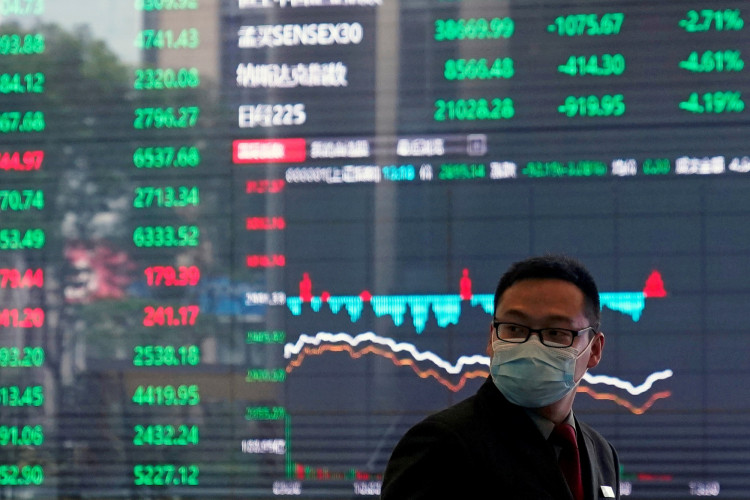As investors prepared for U.S. inflation statistics that may affect the Federal Reserve's interest rate policy, Asian stocks marginally increased on Wednesday, but the dollar held steady.
While the lifting of economic restrictions in China has improved investor optimism and led to a robust advance in the country's and Hong Kong's stocks to start the year, some investors have taken profits because of concerns about the long-term viability of the market recovery.
Chinese markets started the day 0.1% higher while the Hang Seng index in Hong Kong increased by 0.6%.
MSCI's largest index of Asia-Pacific stocks outside of Japan increased by 0.28 percent, while the Nikkei in Japan increased by 1 percent. S&P/ASX 200 in Australia increased by 0.80%.
After Fed Chair Jerome Powell avoided discussing rate policy in a speech and stated that the Fed's independence was necessary for it to fight inflation, U.S. markets closed higher overnight as investors breathed a sigh of relief.
The U.S. consumer price index (CPI), which is due out on Thursday, will be the center of focus for investors. When compared to November's headline annual inflation rate of 7.1%, the data is predicted to show December's annual inflation rate at 6.5%.
The Fed will likely change interest rates at its next meeting at the beginning of next month, so Thursday's data will be critical in predicting what it will do.
After four consecutive 75 bps rate increases in 2022, the U.S. central bank increased interest rates by 50 basis points in December, but it has reaffirmed that it will keep rates higher for longer to contain inflation.
According to Stephen Wu, an economist at the Commonwealth Bank of Australia, investors are expecting that the upcoming inflation report will show more deceleration, potentially allowing the Fed flexibility to decrease the rate of the interest rate increase.
Despite Powell's rather silent stance on policy prospects, Saxo strategists noted that other Fed and non-Fed speakers on Tuesday continued to sound hawkish and raised concerns about inflation. Federal Reserve Governor Michelle Bowman stated on Tuesday that in order to tackle excessive inflation, the central bank would have to hike interest rates even more, which would probably result in a weaker labor market.
Increased economic uncertainty, according to Jamie Dimon, chief executive officer of JPMorgan Chase & Co, may prompt the Federal Reserve to increase interest rates to 5%. The Australian dollar gained 0.3% on the foreign exchange market after data revealed that the annual rate of inflation jumped to 7.3% in November.






